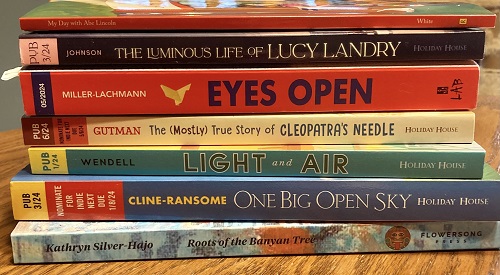The Curious Life of Elizabeth Blackwell
Aberdeen, 1730: the cultured, restless Elizabeth Blachrie resists her parents’ attempts to marry her to a dull but suitable man, for she is in love with Alexander Blackwell: attractive, engaging, but not evidently reliable.
They elope, but instead of returning home as she expects after a wedding in Edinburgh, the new bride finds herself with her husband in London. Based on the true story of this talented botanical illustrator, Holmes’s thoroughly researched novel tells of how the practical, hardworking Elizabeth came into her own when Alexander was thrown into debtors’ prison, mainly as a consequence of setting up a printing business when he had not served a guild apprenticeship.
The plucky woman who succeeds despite a feckless and sometimes exploitative husband might be a familiar trope in historical fiction, but this tale is imbued with verisimilitude; I could almost feel the burin between my fingers as I read of the engraving process. Details like Mrs Salmon’s wax works and the presence of bear-baiters in the streets immerse the reader in Elizabeth’s world. The horrors of the debtors’ prison are told unflinchingly but make one flinch—as do the instances of poverty and degradation on London streets.
Through her association with the collector Hans Sloane, Elizabeth has access to all the specimens she needs. Her sister, a tutor, is a follower of the ideas of the proto-feminist Mary Astell. Language is sprightly, as in “Betty Callow could stop bread rising with one look,” and characterisation is convincing. Despite all Alexander’s disdain for his wife’s talents, and his jealousy at her success, the reader cannot help but feel compassion for Alexander at his terrible end and will share Elizabeth’s desperation at being unable to save him.










